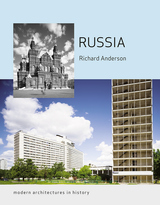
Catholic political identity and engagement defy categorization. The complexities of political realities and the human nature of such institutions as church and government often produce a more fractured reality than the pure unity depicted in doctrine. Yet, in 2003 under the leadership of then-prefect Joseph Cardinal Ratzinger (now Pope Benedict XVI), the Congregation for the Doctrine of the Faith issued a "Doctrinal Note on Some Questions Regarding the Participation of Catholics in Political Life." The note explicitly asserts, "The Christian faith is an integral unity, and thus it is incoherent to isolate some particular element to the detriment of the whole of Catholic doctrine. A political commitment to a single isolated aspect of the Church's social doctrine does not exhaust one's responsibility toward the common good." Catholics and Politics takes up the political and theological significance of this "integral unity," the universal scope of Catholic concern that can make for strange political bedfellows, confound predictable voting patterns, and leave the church poised to critique narrowly partisan agendas across the spectrum.
Catholics and Politics depicts the ambivalent character of Catholics' mainstream "arrival" in the U.S. over the past forty years, integrating social scientific, historical and moral accounts of persistent tensions between faith and power. Divided into four parts—Catholic Leaders in U.S. Politics; The Catholic Public; Catholics and the Federal Government; and International Policy and the Vatican—it describes the implications of Catholic universalism for voting patterns, international policymaking, and partisan alliances. The book reveals complex intersections of Catholicism and politics and the new opportunities for influence and risks of cooptation of political power produced by these shifts. Contributors include political scientists, ethicists, and theologians. The book will be of interest to scholars in political science, religious studies, and Christian ethics and all lay Catholics interested in gaining a deeper understanding of the tensions that can exist between church doctrine and partisan politics.

Richard Anderson looks at Russia’s complex relationship to global architectural culture, exploring the country’s central presence in the Rationalism and Constructivism movements of the 1920s, as well as its role as a key protagonist during the Cold War. Looking deeply at Soviet Russia, he brings the relationship between architecture and socialism into focus through detailed case studies that situate buildings and architectural concepts within the socialist milieu of Soviet society. He tracks the way Russian architectural institutions departed from the course of modernism being developed in capitalist countries, and he reappraises the architecture of the Stalin era and the final decades of the USSR. Finally, he traces the influence of Soviet conventions on contemporary Russian architecture—which is now a more heterogeneous mix of approaches and styles— and how it made a lasting and little-known impact on territories extending from the Middle East, to Central Asia, and into China.
A bold new assessment of Russia’s architectural legacy and contemporary contributions, this book is a fascinating exploration of a tumultuous place—and the creativity that has come from it.
READERS
Browse our collection.
PUBLISHERS
See BiblioVault's publisher services.
STUDENT SERVICES
Files for college accessibility offices.
UChicago Accessibility Resources
home | accessibility | search | about | contact us
BiblioVault ® 2001 - 2024
The University of Chicago Press









